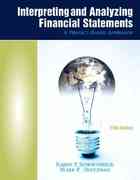Please see the following attachment and complete the assignment.
Case #4 1. Current Events (5 points): Please read the following article or a similar article dealing with consolidations: Tarasovich, B. (October, 2008). After the Acquisition. Strategic Finance, 24 31. Please do the following: Please critique, (What did you like, dislike, not understand, etc.) and summarize the article. (Note: if you picked a different article, please cite your source.) Your critique and summary should be about one page in length 2. Theory (5 points): Please go to www.fasb.org or a related resource and look over the following major fasb statements related to consolidations: (141rBusiness Combinations, 142Goodwill, 157Fair Value Measurement, 160Non Controlling Interest) and do the following: Give a short half page summary of just one statement of your choice Identify what account(s) the statement impacts 3. Consolidated Statements (10 points): Please pick a company of your choice that has consolidated statements. Then please answer the following questions: Who is the subsidiary company and what is their NCI within the parent company? What is the basis of the company's goodwill, (look over the notes to the financial statements?) What Balance Sheet Items do you see that are related to the consolidated portion of your company's consolidated balance sheet? What do the notes to the financial statements say for some of these items? What Income Statement Items do you see that are related to the consolidated portion of your company's consolidated Income Statement? What do the notes to the financial statements say for some of these items? Are there any other notes or items related to the consolidated portion of your financial statements? Please explain. Case #5 1. What does it mean by the flow of costs in a manufacturing company? What account(s) does this flow trace? Could we have a flow of costs for a service company? What account(s) could be affected? 2. What are the basic differences between a traditional cost system and an Activity Based Costing, (ABC) system? Could an ABC costing system be used in a service company? Please give an example. 3. Please review the exhibits listed in this case. What justifications might you still have in using a traditional system over an ABC cost system? 4. Briefly explain what the paragraph on page 34 of the case which mentions Exhibit 1 means. Paragraph: Clearly, however, considerably more of Multi Factory's indirect and support resources are required (on a perunit basis) for the lowvolume, specialty, newly designed products than for the mature, highvolume, standard blue and black pens. Traditional cost systems, even those with hundreds or thousands of production cost centers, will systematically and grossly under estimate the cost of resources required for specialty, lowvolume products and will over estimate the resource cost of high volume, standard products. The distortion in reported costs between standard and specialty products can be avoided only if the standard and specialty pens are manufactured on separate machines in different cost centers. 5. Briefly explain the sentence on page 35 of the case which mentions Exhibit 2. Sentence: Classifying resource expenses by activities performed accomplishes a 90 degree shift in thinking about expenses. 6. How might we use the information that is contained in Exhibit 3 Exhibit 3 7. Based on the discussion centered on Exhibit 4, what costs would you want closer to the 'bullseye' and which ones would you want in the 'outer ring'. Please explain







